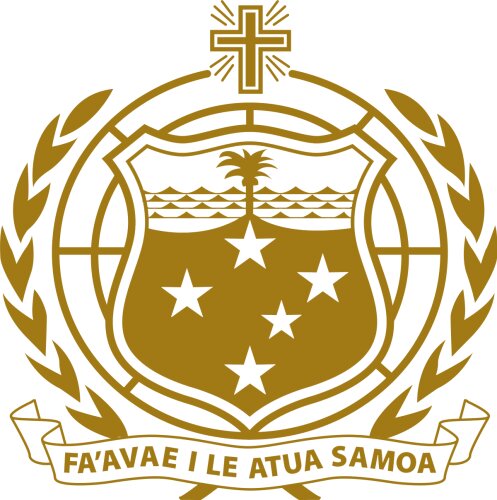Best Criminal Litigation Lawyers in Samoa
Share your needs with us, get contacted by law firms.
Free. Takes 2 min.
Or refine your search by selecting a city:
List of the best lawyers in Samoa
About Criminal Litigation Law in Samoa
Criminal litigation in Samoa refers to the legal process of prosecuting individuals who have been accused of committing a crime. This process involves gathering evidence, presenting arguments in court, and ultimately determining whether the accused is guilty or innocent. Samoa's criminal litigation system is based on the country's laws and regulations, which outline the procedures and penalties for criminal offenses.
Why You May Need a Lawyer
You may need a lawyer in criminal litigation in Samoa if you have been accused of committing a crime and are facing criminal charges. A lawyer can help you navigate the legal system, understand your rights, and defend your case in court. Additionally, a lawyer can provide valuable advice and representation to ensure that your rights are protected throughout the criminal litigation process.
Local Laws Overview
In Samoa, criminal offenses are governed by the Crimes Act 2013 and other relevant legislation. Some key aspects of the local laws that are particularly relevant to criminal litigation in Samoa include the definition of different criminal offenses, the procedures for police investigations and court trials, and the penalties for criminal convictions. It is important to consult with a legal professional who is familiar with Samoan laws to guide you through the criminal litigation process.
Frequently Asked Questions
1. What is the role of a criminal defense lawyer in Samoa?
A criminal defense lawyer in Samoa represents individuals who have been accused of committing a crime and provides legal advice and assistance throughout the criminal litigation process.
2. What are the common types of criminal offenses in Samoa?
Common types of criminal offenses in Samoa include theft, assault, drug offenses, and traffic violations.
3. What are the penalties for criminal convictions in Samoa?
The penalties for criminal convictions in Samoa vary depending on the severity of the offense and may include fines, community service, probation, or imprisonment.
4. How can I find a reputable criminal defense lawyer in Samoa?
You can find a reputable criminal defense lawyer in Samoa by asking for recommendations from friends or family, contacting the Samoa Law Society, or researching online for legal professionals with experience in criminal litigation.
5. What rights do I have as a defendant in criminal litigation in Samoa?
As a defendant in criminal litigation in Samoa, you have the right to remain silent, the right to legal representation, the right to a fair trial, and the right to appeal a conviction.
6. How long does the criminal litigation process typically take in Samoa?
The duration of the criminal litigation process in Samoa can vary depending on the complexity of the case, the availability of evidence, and the court's schedule. It is important to consult with a legal professional for a more accurate timeline for your specific case.
7. Can I represent myself in criminal litigation in Samoa?
While it is possible to represent yourself in criminal litigation in Samoa, it is highly recommended to seek legal representation from a qualified lawyer who can provide expertise and guidance throughout the process.
8. What should I do if I have been arrested for a crime in Samoa?
If you have been arrested for a crime in Samoa, it is important to remain calm, exercise your right to remain silent, and contact a criminal defense lawyer as soon as possible for legal advice and representation.
9. Are there any alternatives to going to trial in criminal litigation in Samoa?
There may be alternatives to going to trial in criminal litigation in Samoa, such as plea bargaining, diversion programs, or mediation. It is important to discuss these options with your lawyer to determine the best course of action for your case.
10. What happens if I am found guilty in criminal litigation in Samoa?
If you are found guilty in criminal litigation in Samoa, you may be sentenced to a penalty determined by the court, which may include fines, community service, probation, or imprisonment. It is crucial to seek legal advice on appealing the conviction or negotiating a lesser sentence.
Additional Resources
For additional resources related to criminal litigation in Samoa, you can contact the Samoa Law Society, the Ministry of Justice and Courts Administration, or reputable law firms that specialize in criminal law. These resources can provide valuable information and guidance for individuals in need of legal advice in criminal litigation.
Next Steps
If you require legal assistance in criminal litigation in Samoa, it is essential to contact a reputable criminal defense lawyer who can provide you with expert advice and representation. Be sure to gather all relevant information about your case, cooperate with your legal team, and trust the legal process to ensure that your rights are protected throughout the criminal litigation process.
Lawzana helps you find the best lawyers and law firms in Samoa through a curated and pre-screened list of qualified legal professionals. Our platform offers rankings and detailed profiles of attorneys and law firms, allowing you to compare based on practice areas, including Criminal Litigation, experience, and client feedback.
Each profile includes a description of the firm's areas of practice, client reviews, team members and partners, year of establishment, spoken languages, office locations, contact information, social media presence, and any published articles or resources. Most firms on our platform speak English and are experienced in both local and international legal matters.
Get a quote from top-rated law firms in Samoa — quickly, securely, and without unnecessary hassle.
Disclaimer:
The information provided on this page is for general informational purposes only and does not constitute legal advice. While we strive to ensure the accuracy and relevance of the content, legal information may change over time, and interpretations of the law can vary. You should always consult with a qualified legal professional for advice specific to your situation.
We disclaim all liability for actions taken or not taken based on the content of this page. If you believe any information is incorrect or outdated, please contact us, and we will review and update it where appropriate.
Browse criminal litigation law firms by city in Samoa
Refine your search by selecting a city.










